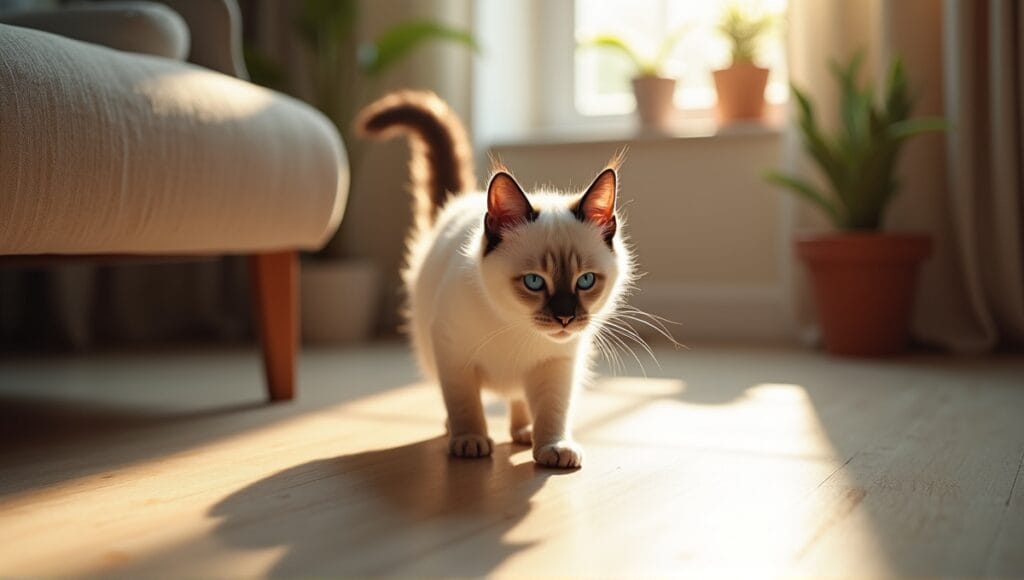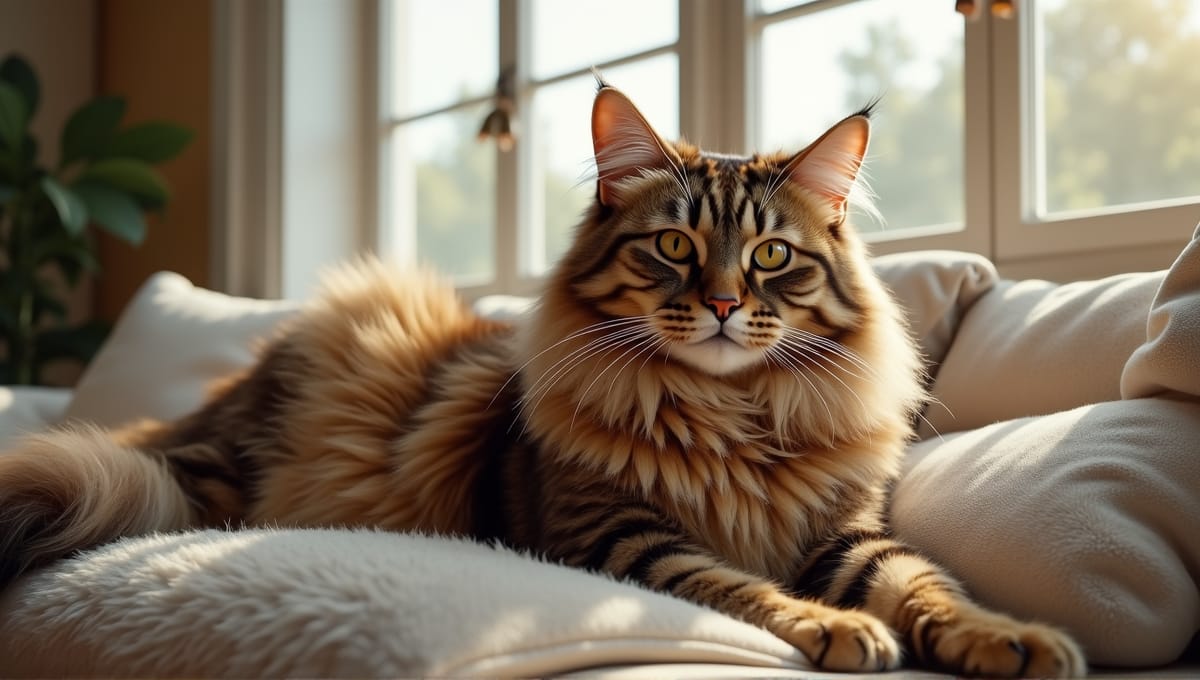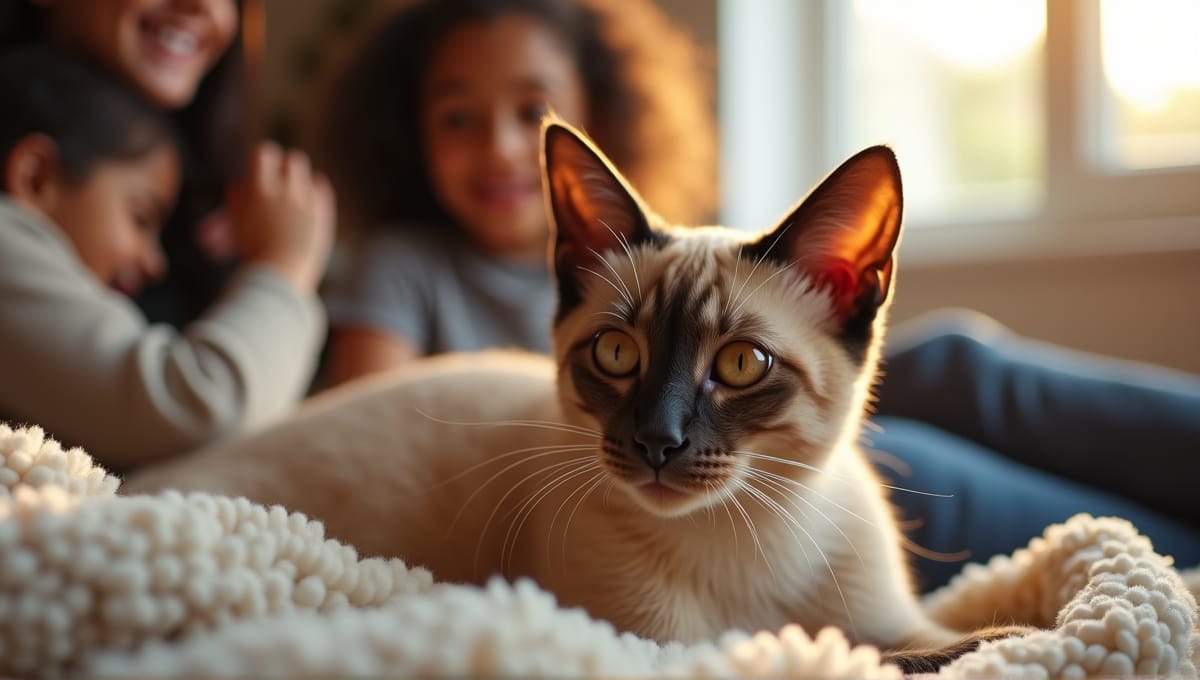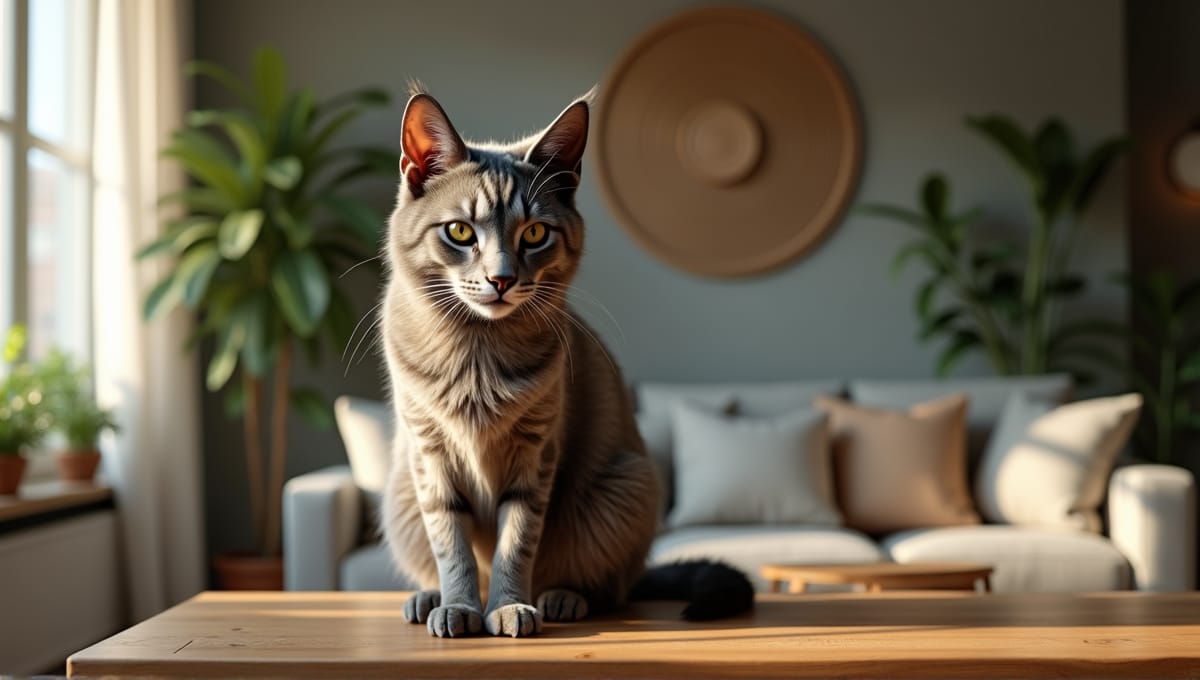Snowshoe cats are an intriguing breed with distinct markings and personalities. As a lifelong cat lover, I’ve come across many snowshoes over the years. These cats encapsulate the ideal characteristics from both the Siamese and American Shorthair breeds. They’re affectionate, playful, and have a beautiful look. But is a snowshoe cat the best cat for you? Let’s discuss what makes snowshoe cats unique and help you determine if one is a good fit for your family.
Distinctive Traits of a Feline with White Paws
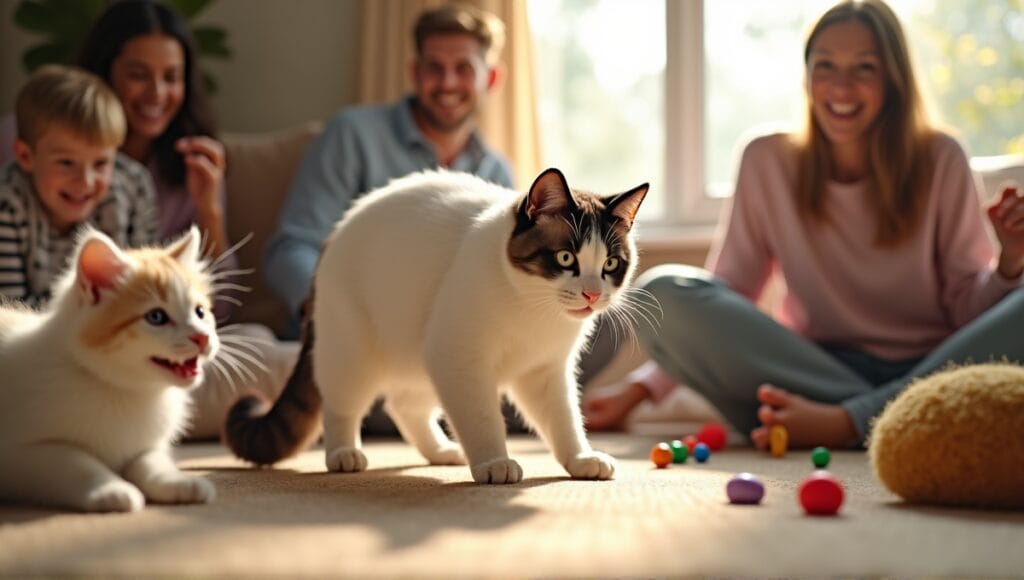
Snowshoe cats are an interesting and attractive cat breed. Perhaps the most defining characteristic of Snowshoe cats are the white “boots” on their paws. They have a moderate body size and a muscular build. The coat is short, smooth, and has a slight sheen to it. Their heads are wedge shaped, they have high cheekbones, and their eyes are quite large and expressive.
Here are the unique markings of a Snowshoe cat:
- V-shaped area of white fur on the face
- White paws (resembling snowshoes)
- Dark points on the tail, ears, and face
- Body that is a lighter color
As for Snowshoe cat color variations, there aren’t many. They typically have seal and blue point patterns. The body is a lighter color, and they should have dark points. As kittens, Snowshoe cats are born nearly all white, and their point color should deepen as they get older.
An adult Snowshoe cat will typically weight between 7 and 12 pounds. Males are often larger than females. With proper care, they live for about 14 to 19 years.
Distinctive Character Attributes of This Feline Breed
Snowshoe cats are very social. They enjoy the company of people and often follow their owners around the house. They don’t do well in solitude and will always be ready to participate in family activities.
The Snowshoe is also a highly intelligent breed. They are great problem solvers and enjoy puzzle toys. You can also train them to do tricks and walk on a leash. They are also great puzzle solvers, so you’ll have to be creative in keeping them mentally stimulated.
Another characteristic of the Snowshoe is their talkativeness. While they aren’t as noisy as their Siamese ancestors, they are still quite chatty. You’ll hear a variety of soft meows, chirps, and trills. These vocalizations are their primary way of expressing their needs and emotions.
Snowshoe cats are also very affectionate. They form strong attachments to their families, and you’ll receive plenty of cuddles and lap time. They often have one favorite person in the household, though they will still be friendly with everyone.
Snowshoe Cat Care Requirements
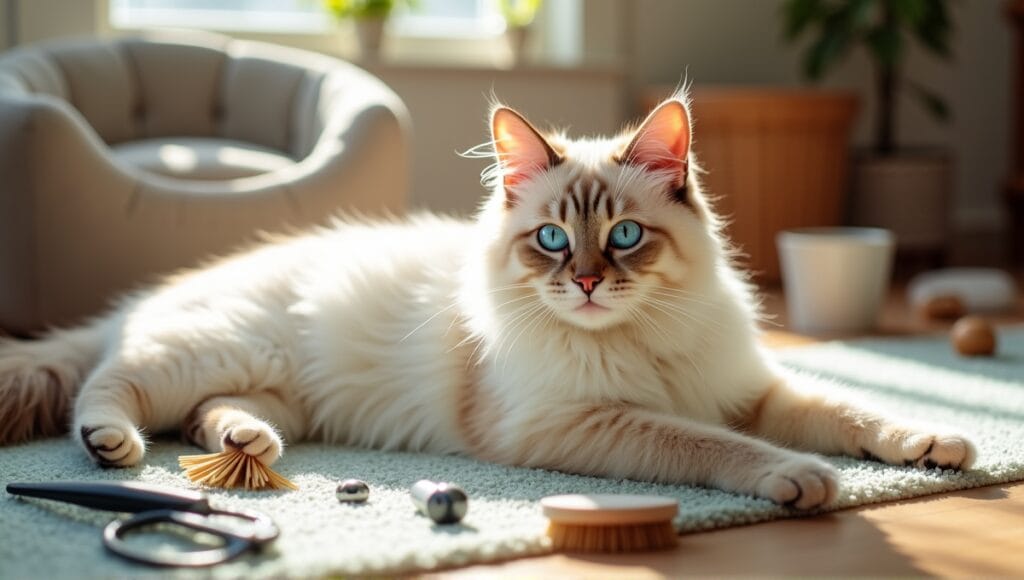
Snowshoe cats are relatively low maintenance. Their short coat requires little grooming. Here’s how to care for one:
- Brush weekly to remove loose hair
- Trim nails every couple of weeks
- Clean ears once a month
- Brush teeth regularly to minimize dental problems
Snowshoe cats need regular exercise, as they’re quite active and playful. Keep them entertained with interactive toys and climbing structures, and schedule daily play sessions to prevent them from becoming bored and overweight.
Their dietary needs are similar to those of any other cat. Just feed them a high-quality cat food designed for their age and activity level. Some Snowshoes have a tendency to overeat, so be mindful of their food intake to keep them at a healthy weight.
Monitor their health by scheduling regular vet checkups and watching for any changes in behavior, appetite, or litter box habits. These could be signs of a health issue. Keep their vaccinations and preventative care up to date.
The Roots and Beginnings of a Distinctive Feline Variety
The Snowshoe cat breed is a relatively modern breed with an interesting history. In the 1960s, Dorothy Hinds-Daugherty, a Siamese breeder in Philadelphia, developed this breed. When she had a litter of Siamese kittens, she noticed that some of the kittens had unique white paws. This piqued her curiosity, so she decided to develop a new breed in which all cats had these distinct paws.
Siamese cats were instrumental in creating the Snowshoe breed, and Hinds-Daugherty also used American Shorthairs in the breeding process. Her goal was to create a cat with Siamese color points and slightly white paws as well as a more moderate body structure.
Developing the Snowshoe breed posed challenges, as the desirable distinguishing features are associated with a recessive gene. Consequently, it was difficult to successfully breed cats with the signature appearance of the Snowshoe breed. Today, when you see a litter of Snowshoe kittens, not all of them will have the breed’s defining white paws.
It took time for various cat associations to recognize the breed:
- 1974: Cat Fanciers’ Federation (CFF) recognized the breed.
- 1982: The International Cat Association (TICA) accepted the breed.
- 1994: TICA granted the breed championship status.
- 2022: Cat Fanciers’ Association (CFA) recognized the breed.
Snowshoe Cat Health Concerns
Snowshoe cats are a fairly healthy breed. However, they can inherit some health issues from their Siamese side of the family. Genetic health issues include heart problems and crossed eyes. Regular vet checkups can help identify these issues early.
Common health problems in Snowshoe cats are:
- Hypertrophic cardiomyopathy
- Periodontal disease
- Obesity
- Feline lower urinary tract disease
Preventative healthcare is the best medicine to keep your Snowshoe healthy. Feed them a quality diet and give them plenty of exercise. Stay up to date with vaccinations and parasite prevention. You should also pay extra attention to their dental health due to their predisposition to periodontal disease.
The Snowshoe cat lifespan is excellent. With proper care, they live on average between 14 and 19 years. Some have even lived into their early 20s. Regular vet checkups and a healthy lifestyle will help them live to their max lifespan.
Living with a Snowshoe Cat
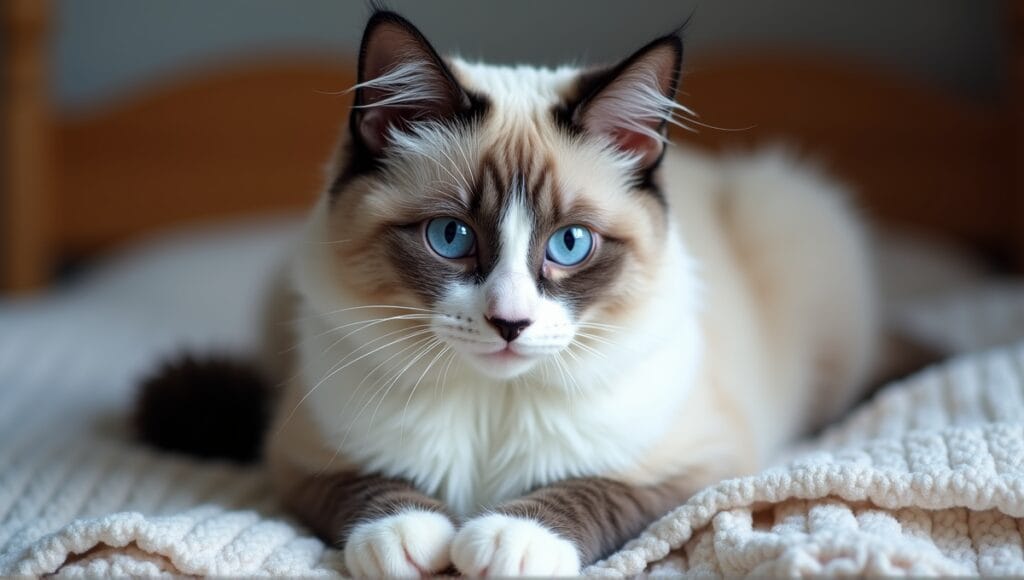
Snowshoe cats make excellent family pets. They’re mild-mannered and gentle with children. They’re also playful, making them great playmates for children. As always, make sure your child respects the cat while playing, and never let your child mistreat the cat.
They also get along with other pets and are quite social, enjoying the company of other animals. However, be sure to introduce any other pet you have properly. Snowshoe cats are also comfortable living with other dogs, cats, or friendly animals.
Snowshoe cats don’t require a lot of space, although they are fairly active. To help them stay active, be sure to have cat trees they can climb and a window perch where they can enjoy watching the outdoors.
The daily care needs for a Snowshoe cat are simple:
- Feed it twice per day.
- Keep the water bowl full.
- Clean the litter box each day.
- Spend time playing and interacting with it.
- Groom it (brush its coat and check its ears and teeth).
Snowshoe Cat Genetics
Snowshoe cat genetics are interesting. The breed’s unique patterns are the result of specific gene pairs. The white spotting gene causes the white paws and facial patterns. However, this gene is recessive, so it’s difficult to breed Snowshoes with consistent patterns.
Snowshoes have various color point patterns inherited from their siamese ancestors. The himalayan gene causes darker color points on the tips of the ears, nose, tail, and paws. Enzymes in their skin are temperature-sensitive and control pigment in the hair shaft. As a result, Snowshoe kittens are born almost all white and develop their points later.
Breeding Snowshoe cats requires some planning. Not all kittens will have the classic Snowshoe markings. Therefore, breeders have to select for desired traits and ensure the health of the cats. Genetic testing can identify carriers of diseases.
To Sum It Up
Snowshoe cats are excellent and fascinating friends. They make great pets for many families due to their striking looks, friendly demeanor, and intelligence. Snowshoe cats are slightly more independent than other cats and have reasonable grooming requirements. They also don’t ask for the same level of attention as a Siamese.
By addressing their basic care needs, health requirements, and understanding their genetic predispositions, you can create a happy home for a Snowshoe. The cats themselves are affectionate, active, and interesting.


